
Many of us see the world through a filter of scarcity. This pervading feeling of lack causes us to hyper-focus on what we don’t have and leads to enormous stress, anxiety, and fear. A scarcity mindset doesn’t merely limit our material wealth. It robs us of rest, creativity, and intuitive guidance.
In mainstream spirituality, the “scarcity mentality” is often portrayed as a personal issue, one that is only connected to our financial situation and nothing more. We are told to fix this personal failing by shifting to an “abundance mindset.” And moving to this state of abundance is as simple as willing yourself to think positively, repeat affirmations, and employ linguistic tricks.
But I believe the root of this scarcity worldview is much deeper and more pervasive than your personal “money story.” Our belief in scarcity doesn’t arise out of thin air, or even solely from our individual experiences. It is a cultural phenomenon. Unregulated, late-stage capitalism conjures this pervasive feeling of lack through artificial scarcity.
Artificial scarcity is a process of limiting and wasting supply to increase profit. This manufactured scarcity is all around us in American culture. While millions go homeless, fancy houses sit empty. A third of our food supply goes to waste, as 14 million children go hungry. Billionaires buy up life-saving community hospitals, turning them into luxury hotels amid a population lacking adequate health insurance.
Here in late-stage capitalism, artificial scarcity is a cornerstone of our cultural conditioning. It becomes so inherent that we forget the lack is manufactured.
We live in a cycle of scarcity, working long hours and hustling on our side gigs, feeling we are always on the brink of ruin, trying to outrun overwhelming burnout.
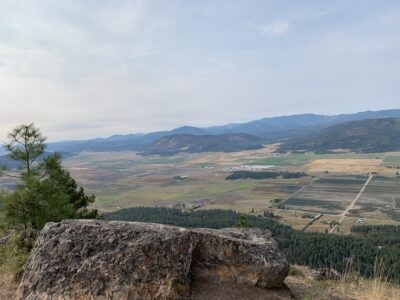
My whole adult life had been a scarcity cycle: working jobs and pursuing degrees that demanded all my energy. Eventually, I would end up in burnout and retreat for a while. Then the process would begin again.
And this cycle didn’t just limit my imagination in terms of monetary earnings. I began to see even the intangible as scarce. I was drained by the constant, nagging anxiety that I wasn’t doing enough to earn money. All of my attention went to the potential of making money. I felt creatively blocked, emotionally lost, and lived in constant brain fog.
But I need to make money NOW. That thought went round and round in my head in my last phase of scarcity burnout. I was months away from finishing a master’s in Data Analytics, for which I felt no passion. I wanted to write and embark on spiritual exploration. Yet I couldn’t even let myself dream because I couldn’t afford NOT to use this degree.
So I finished the program with a 4.0, and spent months in an arduous job- interviewing process for political research positions. I did all the “right” things, according to my rational self. But each time I got to the final interview, I flopped. I fell into a deep depression and felt like an utter failure because I couldn’t land a job in the field. All the time, I was ignoring the fact that I didn’t WANT any of these jobs.
Yet in this scarcity bubble, I couldn’t see another way. Not only could I not afford to take time and explore my writing and spiritual practices, but I was also afraid creativity was scarce, and maybe I hadn’t been allotted any of it.
Our rational, logical self, which seeks to keep us safe by following family patterns, social norms, and cultural standards, often becomes dominant and directs our actions. While our rational self is beautiful and necessary, it is also not a very good director. It uses the culturally embedded fear of scarcity to drive us to exhaustion. Nothing we do is ever enough to satiate this anxiety over lack. We become hyper-focused on money and production to keep us safe, which drains our creativity until we feel like husks.
The scarcity mindset has robbed us of our right to rest, create, and live in the intuitive flow of our bodies’ rhythms. And when we are operating from the cultural conditioning of scarcity, it is easy to see everything as finite: love, ideas, compassion, and safety. We must earn them all.
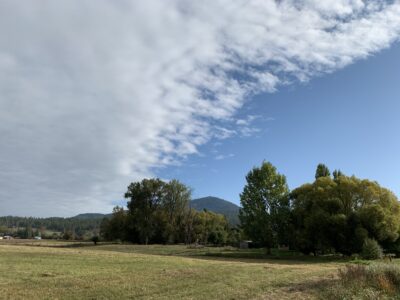
After months of not landing a job, I said to hell with it. There has to be a better way to live. I simply couldn’t sustain the hustle any longer. In my desperation, I turned to my intuitive guidance and began a process of reconnecting with my intuition, learning to value its instinct over my rational, strategic self’s desire to meet societal standards of success.
This has not been a quick or straightforward process. It is messy and complicated. I had to learn to discern between my rational mind and my intuitive voice. It required I heal traumas that kept me disconnected from my body. And trusting intuitive guidance required unlearning many ingrained beliefs that connected my worth with my production and my value to my financial earnings.
I am learning to trust my instincts, gut feelings, and energy patterns above the rules and outside advice. I am beginning to trust what feels most natural and expansive, instead of what seems most immediately rational and practical. Over the past year, I explored this process’s layers, and I don’t imagine I’m done yet.
But claiming my intuition and beginning to trust it with the decisions opened a new aspect of me. I can touch into grounded stability, channeled creativity, and an inherent sense of worth, which lies underneath the choppy waves of my rational, scarcity conditioned mind. There is abundance in my intuitive center, an abundance of ideas, passion, and flow.
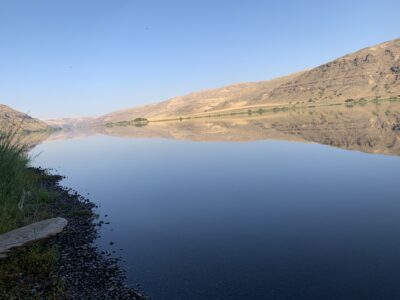
Before I stepped into a new relationship with my intuition, it was impossible to imagine feeling stable, creative, let alone worthy. The practices I have used to begin unlearning the cultural scarcity cycle and reconnect with my intuitive abundance were not always clear and straightforward, but I have found them ultimately transformational:
- Honoring Cyclical Energy Patterns
I no longer live in a linear manner, which means that I don’t force myself to push through when my energy is low. I allow myself more time to rest and process emotions. And when my energy is high, I move exponentially.
Honoring our natural energy patterns is the bedrock of reconnecting with your intuition. We must rest to heal and to create. I found the rest necessary to get back in touch with my intuition wasn’t scrolling through social media, but spending time in nature. It’s not flipping through channels but sleeping deeply and meditating regularly. Not that my life doesn’t also include social media and Netflix, but I also needed to make time for this deep rest that allowed for reconnection with my intuition.
- Discerning + Unlearning Scarcity Messages
Moving away from linear living brings up cultural and familial messages about the fear of not having enough. I noticed a lot of scarcity beliefs arose when I began allowing myself space to rest. Resting is laziness. I won’t get ahead if I don’t push and grind. There is only so much time, and by relaxing, I am letting others get ahead of me. I’m not worthy of care, comfort, or affection if I’m not earning it.
These culturally conditioned scarcity messages were my rational mind trying desperately to keep me safe by returning me to “normal.” It takes a lot of patience and tenderness to recognize and sit with these messages. Over time I have found they have quieted. And when they arise, I can name them and question if they are real.
- Healing Frozen Parts
Trauma disconnects us from our intuition, because through trauma, we learn to dissociate from our bodies. When we live with the effects of trauma, it can seem impossible to feel our intuitive guidance.
Reconnecting to our intuition involves healing these frozen parts by making space for them. Whether we are survivors of abuse, natural disasters, or just the trauma of living in a scarcity culture, there are parts of us that need to be acknowledged.
For me, healing some of my core trauma wounds through intensive therapy and embodiment meditation brought about the most profound shifts in my internal guidance system.
- Feeling What is Present
Intuitive guidance is present-focused. What are we feeling here and now? Shifting to intuitive living has required that I let go of my obsession with to-do lists, setting goals and rigidly scheduling my life. I have to feel my internal rhythms and energy patterns, directing me in the present. Meeting friends on Friday can sound fantastic on Tuesday, but could feel draining on Friday afternoon.
Our intuitive guidance is here to support us in the present. We can no longer set a plan, then turn off and blindly follow it. I catch myself all the time living on autopilot, going through my usual schedule until I remind myself to come back and check in. Is my body longing to get up and stretch even though I haven’t finished the paragraph? Am I hungry, or am I just used to eating at this time? Living intuitively requires feeling the directions of your deeper self moment by moment.
Author bio:
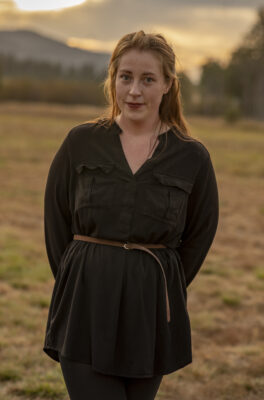 Lisa Greene (she/her)
Lisa Greene (she/her)
Lisa is a freelance intuitive writer for holistic entrepreneurs. She has a BA in psychology from Western Washington University, and spent years working in sexual health education and anti-violence community organizing. She is now learning to balance her passion for service with intuitively-led living, and writes about her insights on her blog, Intuitively Guided Living.


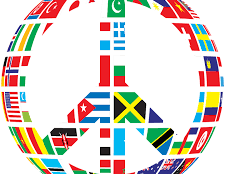
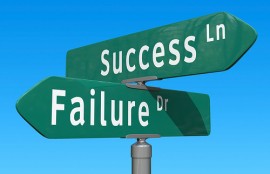

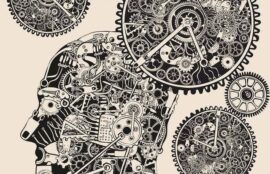
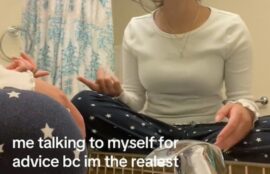

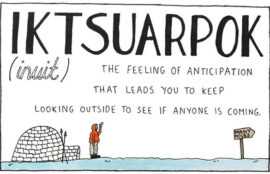

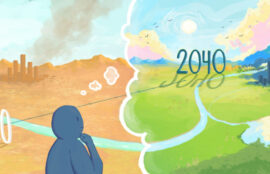


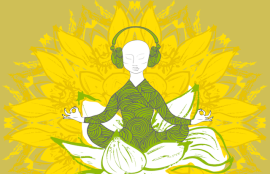
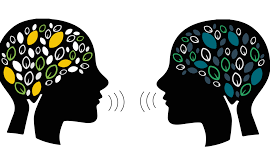

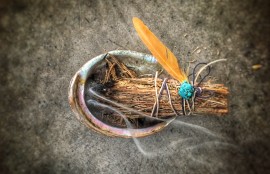
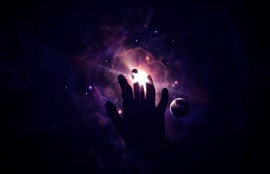

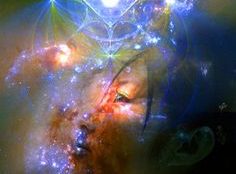
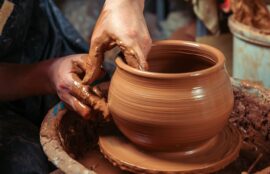
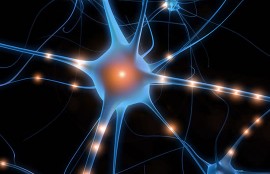
Sorry, the comment form is closed at this time.